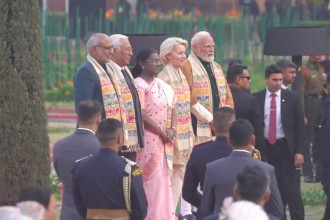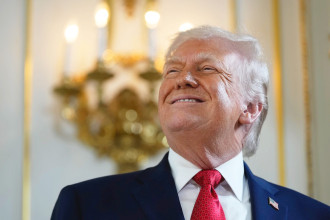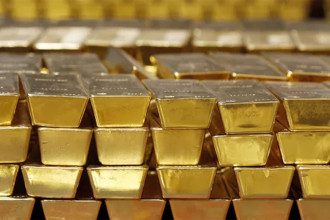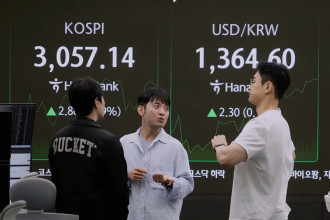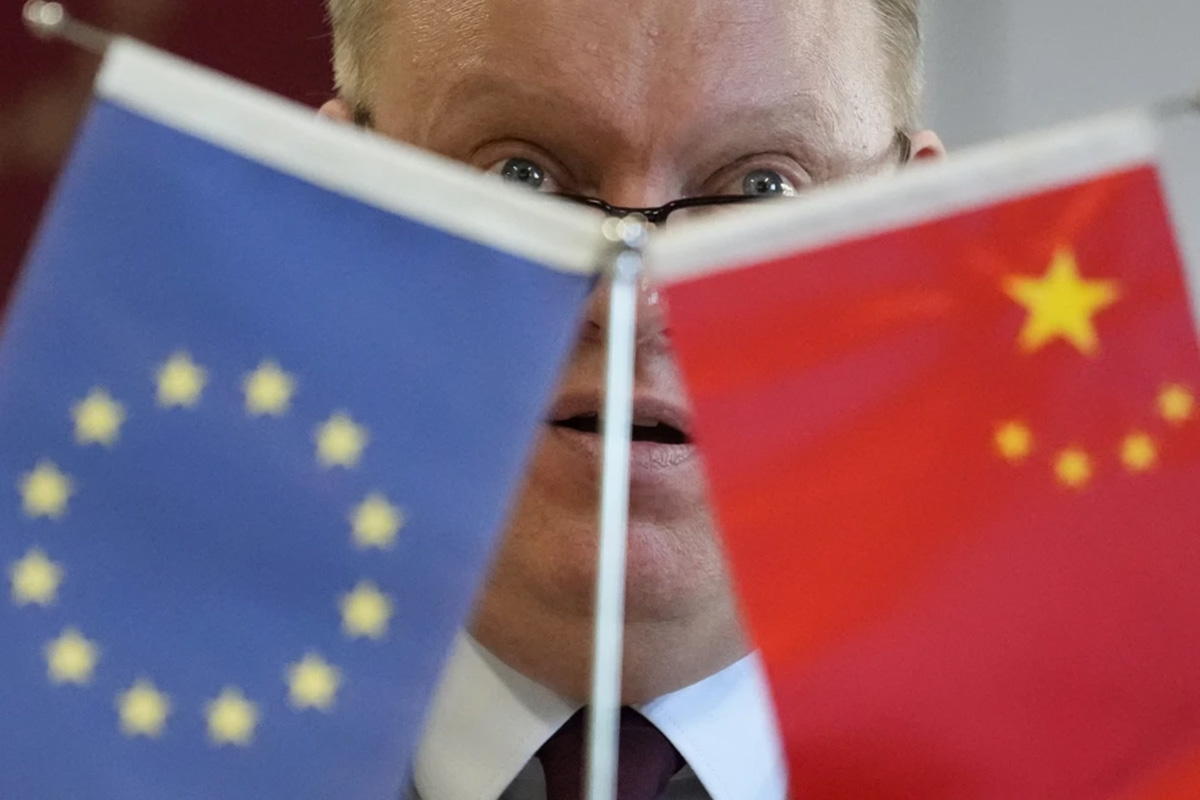
BEIJING: Top leaders from China and the European Union hold a summit in Beijing this week as the two major economic powers seek to smooth over disputes ranging from trade to the Ukraine conflict.
Beijing and Brussels have been gearing up to mark the 50th anniversary of their establishment of diplomatic ties, but a suite of squabbles over state subsidies, market access and wartime sanctions has dampened the festivities.
A spokesperson for China’s Foreign Ministry confirmed on Monday that European Council President Antonio Costa and European Commission President Ursula von der Leyen will visit on Thursday.
The announcement followed the EU’s statement on Friday that the pair would attend the EU–China summit in Beijing after concluding separate meetings in Japan on Wednesday.
Costa and von der Leyen will meet Chinese President Xi Jinping, with whom they will discuss EU–China relations and current geopolitical challenges, including Russia’s war in Ukraine, the EU said.
They will cover trade and economic aspects of the relationship in more detail with Premier Li Qiang, according to the bloc.
“The summit is an opportunity to engage with China at the highest level and have frank, constructive discussions on issues that matter to both parties,” Costa said. “We want dialogue, real engagement and concrete progress. We aim for a fair, balanced relationship that delivers for both sides.”
Trade tensions have cast a shadow over preparations, with Bloomberg News reporting this month that China would cancel part of what was originally planned as a two-day summit.
The two sides have criticised each other for what each regards as breaches of fair-trade principles.
Von der Leyen said this month that the EU would look to address its yawning trade deficit with Beijing, which stood at $357 billion last year. She added that Brussels would demand China ease market access for European companies and loosen export controls on strategically crucial rare earths.
Beijing has said the EU must change its mentality and properly handle divergences and frictions.
Subsidies, tariffs, Ukraine war
An Irish regulator helping police EU data privacy has launched an investigation into TikTok over its alleged storage of European users’ personal data on servers in China. In May, the Data Protection Commission fined TikTok, whose parent company is Chinese-owned ByteDance, €530 million for exporting personal data to China.
TikTok plans to appeal the fine, and Beijing denies asking Chinese firms to “illegally” collect or store users’ personal data.
The EU has also imposed hefty tariffs on electric vehicles imported from China, arguing that Beijing’s industrial subsidies unfairly undercut European competitors. Beijing rejects the claim and has launched what were widely seen as retaliatory probes into imported European pork, brandy and dairy products.
Meanwhile, the war in Ukraine remains a bone of contention, with the EU accusing China of tacitly supporting Russia’s invasion—an allegation Beijing denies.
Last week, Brussels announced a new package of sanctions aimed at hobbling Russia’s oil revenues, banking sector and military capabilities, which also included some Chinese firms and financial institutions.
China’s Commerce Ministry slammed the move on Monday, saying it had “a serious negative impact on China–EU economic and trade relations.”
By RSS/AFP



